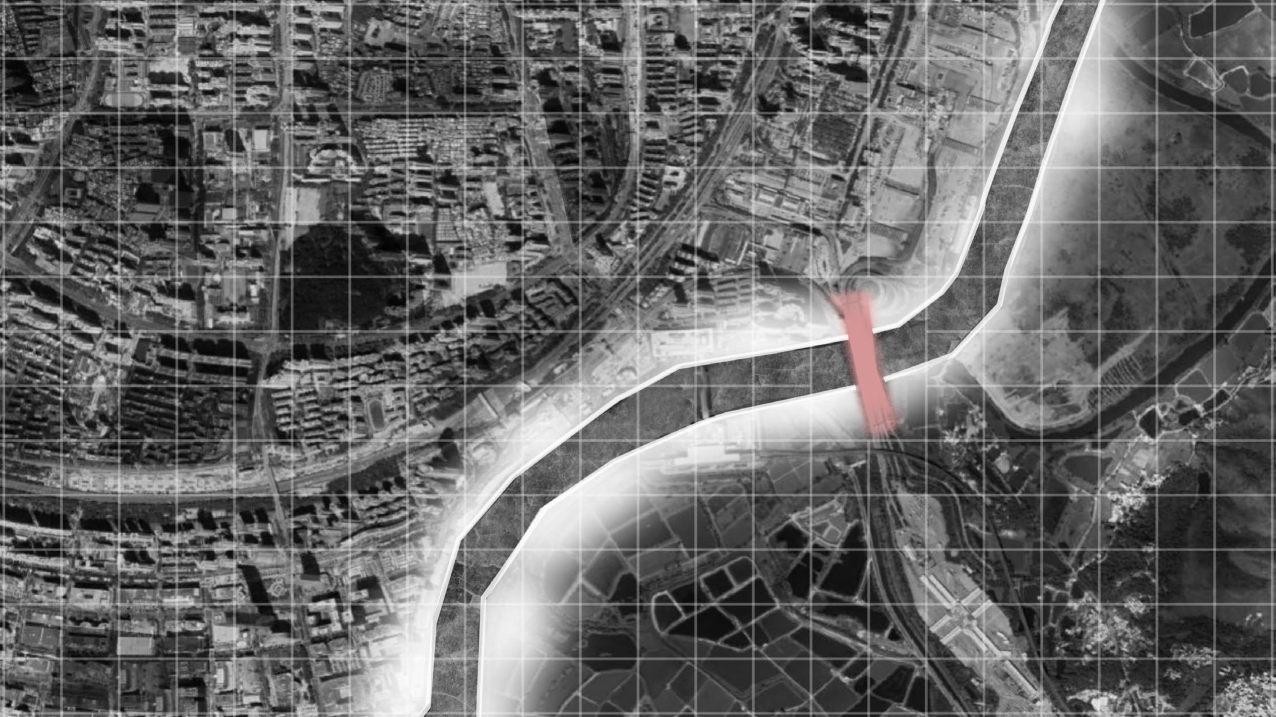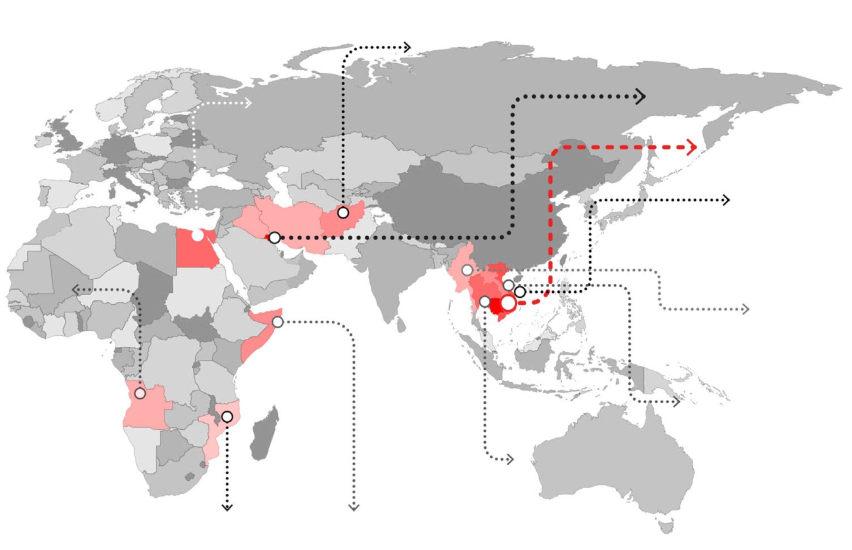
3 minute read
Wars In The Past CenturyStrategy
from Wenxuan Tang Portfolio 2023
by 唐唐
1. Dwelling form
We combine traditional stilted building with Angkor Wat to form the appearance of our skyscraper and all the conventional life style will be kept inside such as collecting water, washing and playing. People could serve their daily life without exit the building. The use of stilted buildings and different functional areas make the residential form no longer homogeneous.
Advertisement
2. Transportation
A.The mono floor does not change the original mode and still operates independently.
B.Strengthening the vertical traffic between each floor and weakening the concept of “Storey” by using the stairs to connect different functional districts in the vertical network.
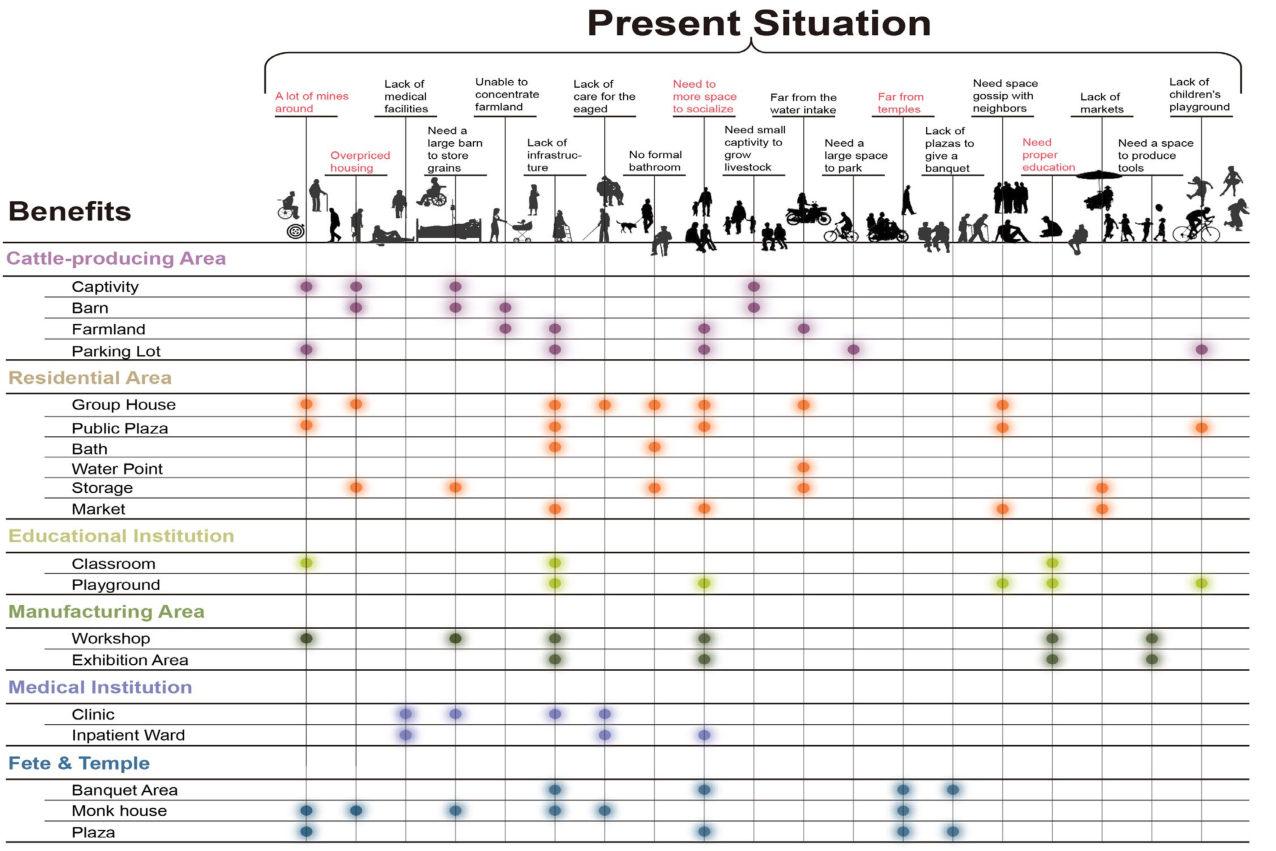
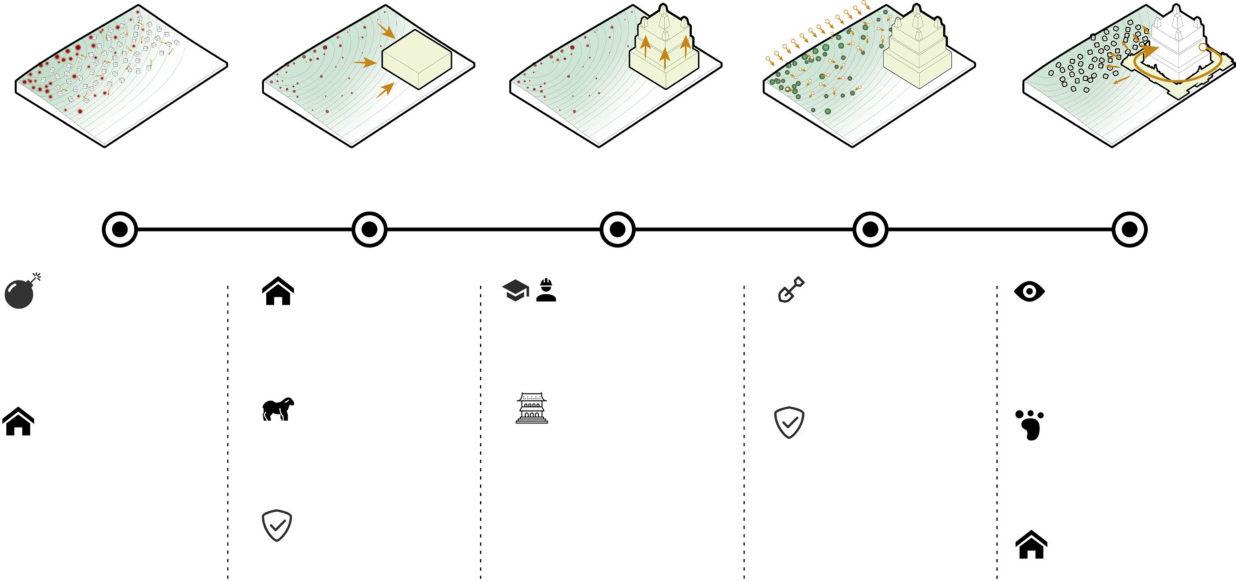
3.Function Division
According to Maslow's hierarchy of needs, the community is optimized the material needs and spiritual needs.

A.Individual life (Livestock farms, barns, residences and markets. )
B.Social facilities (Schools, handicraft factories, hospitals and healing garden. )
C.spiritual life (festivals, temples and ritual space. )
4. Establish a new vertical industrial chain
In the last period, tourism can be promoted in the skyscraper and various interactive activities are able to be carried out such as agricultural activities, holding exhibitions, handicraft activities and so on. The sightseeing elevators within the building will be used to link the touring routes and attracting more tourists. On this account, the community inside the skyscraper is capable of achieving the consolidated development in farming, manufacturing and tourism field.
Function Division
Spiritual need to realize one's idea
Concept Statement
Esteem Needs
Need to be recognized Regroup
Need to participate in social activities, including friendship and love
Avoid threats to life
Instinct level needs, including appetite, sleep, desire
Security Needs
Physiological Needs
20202025203520602090
Present Situation the Gathering of Residents the Formation of Community the Transformation of the "Vertical Community" "Cleaning Plan"
Landmine Risk Minesexistinmany poor villages in Cambodia during longperiodofwar.

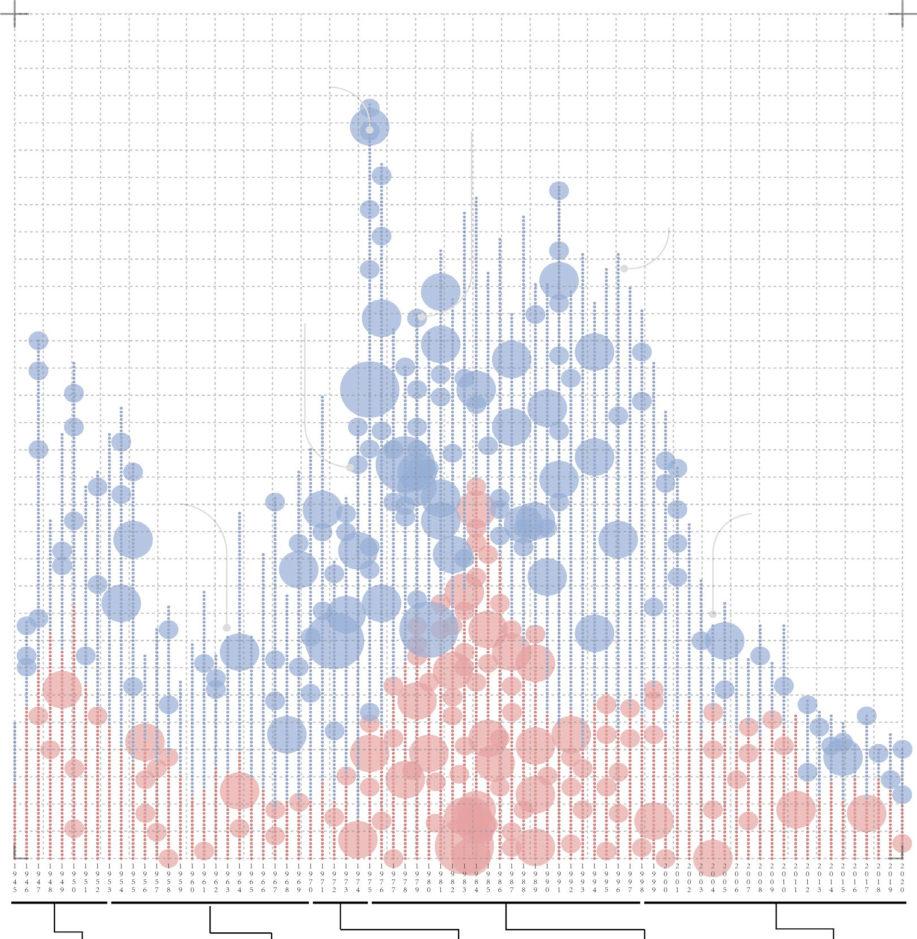
Resident Manyvillagerscan't afford to live in safe areas, so they have to live beside the dangerous landmine.
Resident Villagersconstructa vertical community insafeareas.
Agriculture Theyraiselivestock and farm at the ground floor.
Safety Safety will be assured in new home.
Advanced Demand
All the people study and work in the community.
Spirits
In traditional festivals, people need space for celebrating and sacrificing.
Landmine The government and the international organizations help root out the landmines.
Recovery
After the examination,the government and international organizations help root out the landmines.
Exhibition
Some spaces will be transformed into museums to show the painful history.
Torism
The building will be visited by travellers in the future.
Resident Villagers choose to live in it or move out.
Physical Recovery
Psychological Recovery
Water-Recycle System Roller Car
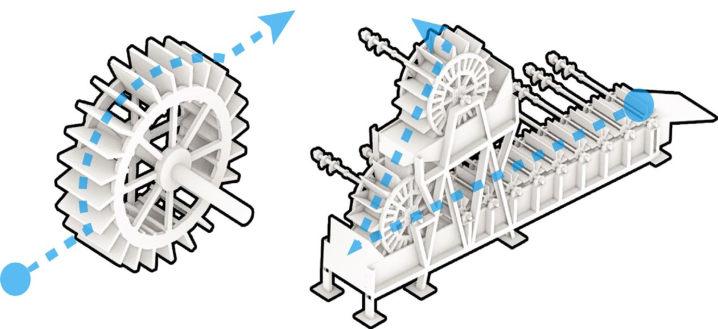
The Cambodian people's life is inseparable from water. Modern pumps and traditional waterwheel technology are combined to meet the water demand of the whole building, and multiple semi outdoor pools are added to continue the local unique customs and create a variety of social places.
Demolition Of Residential Units
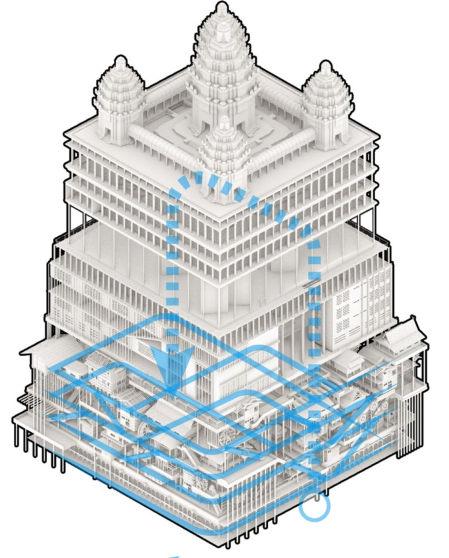
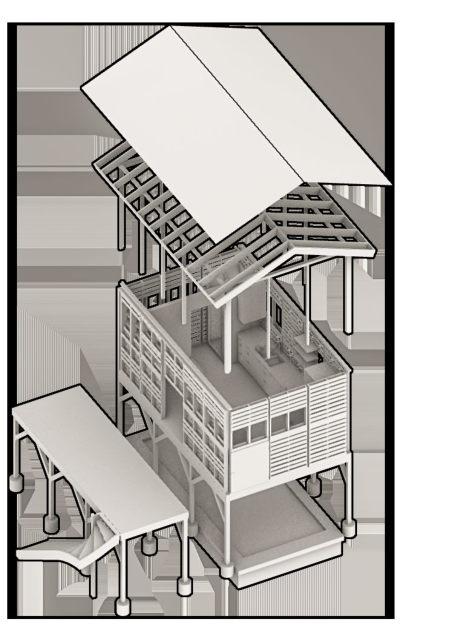
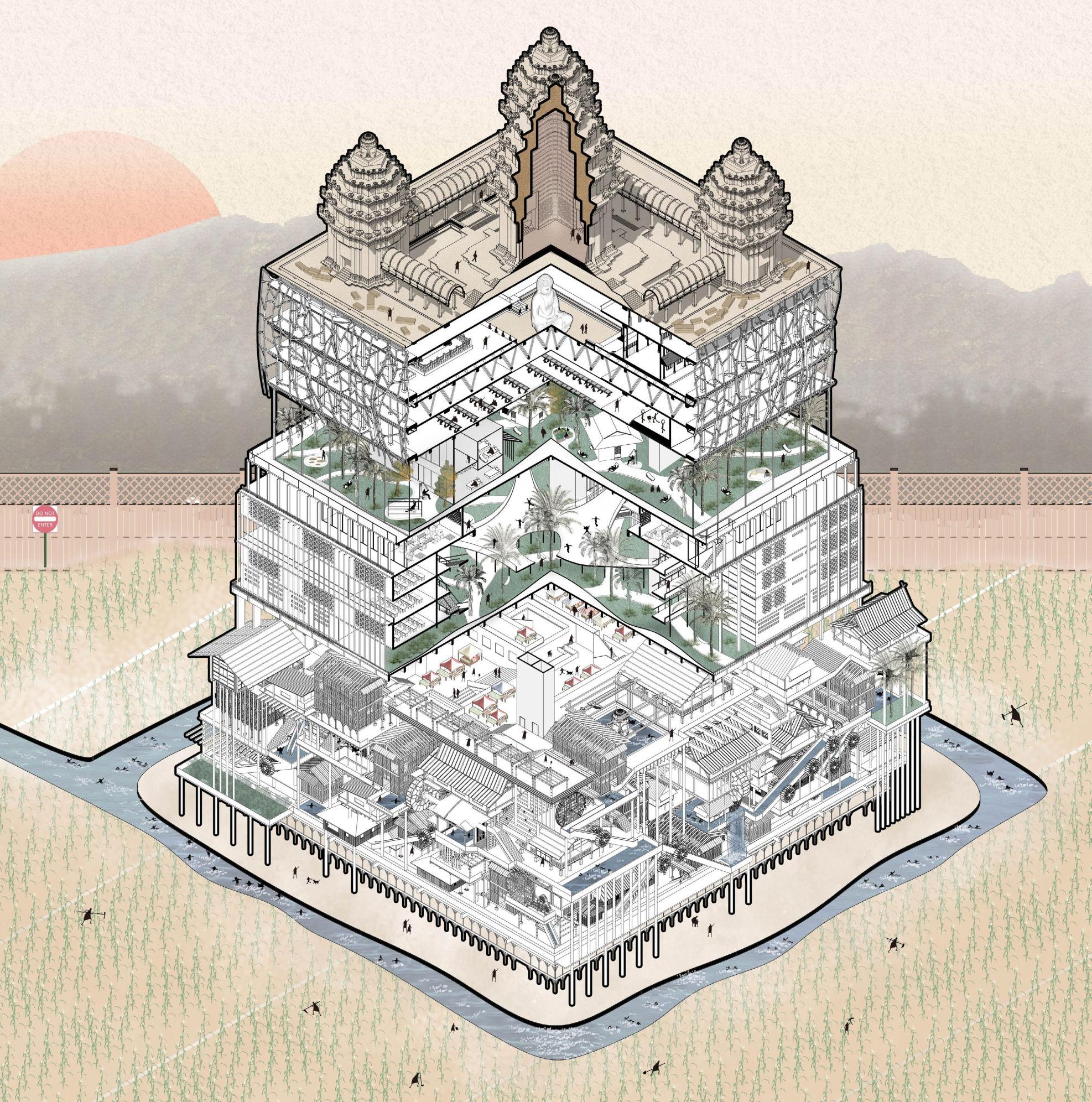
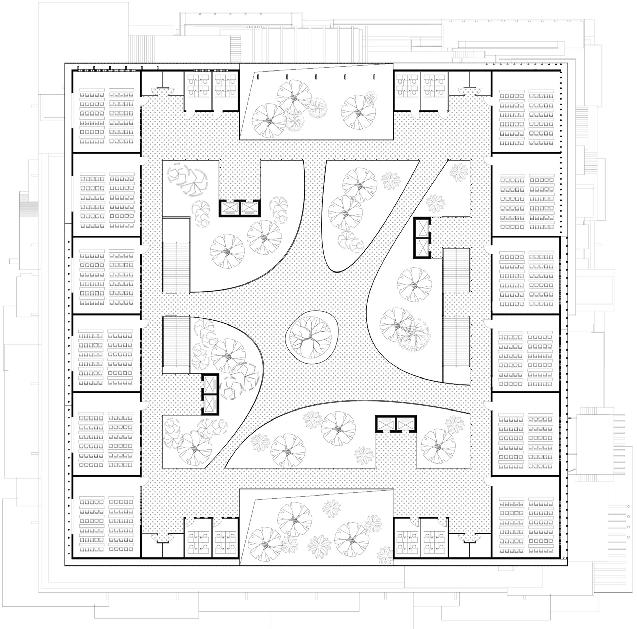
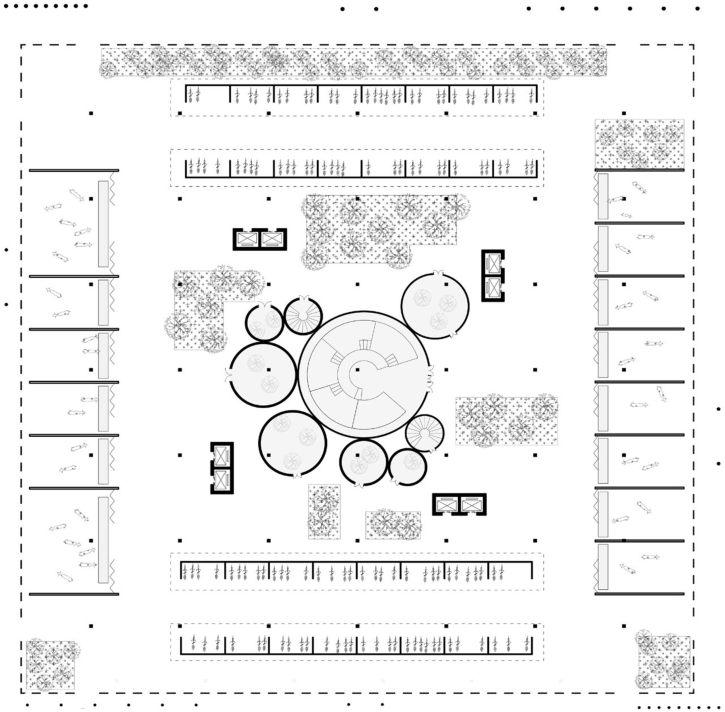

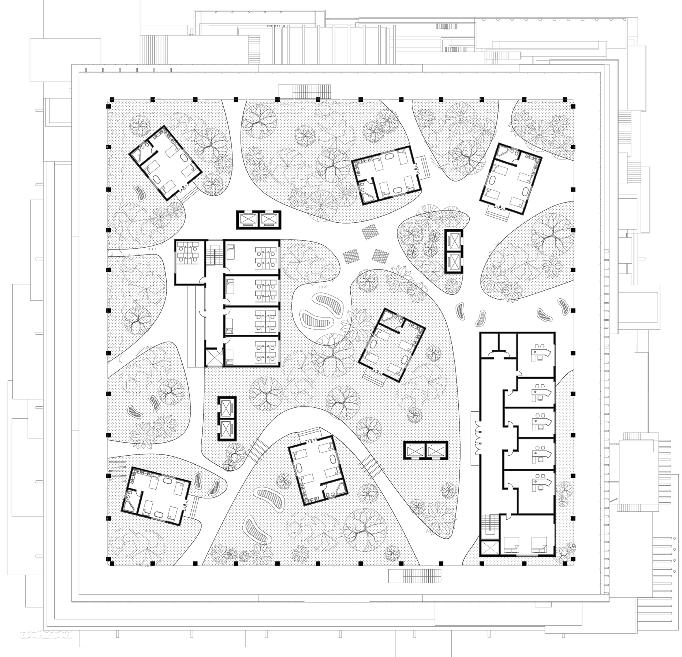
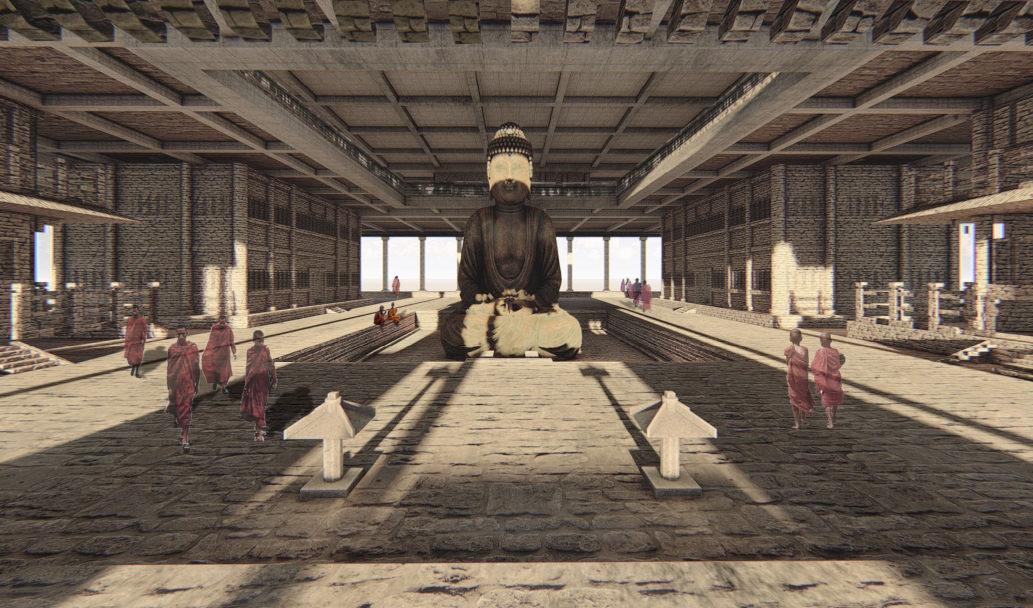
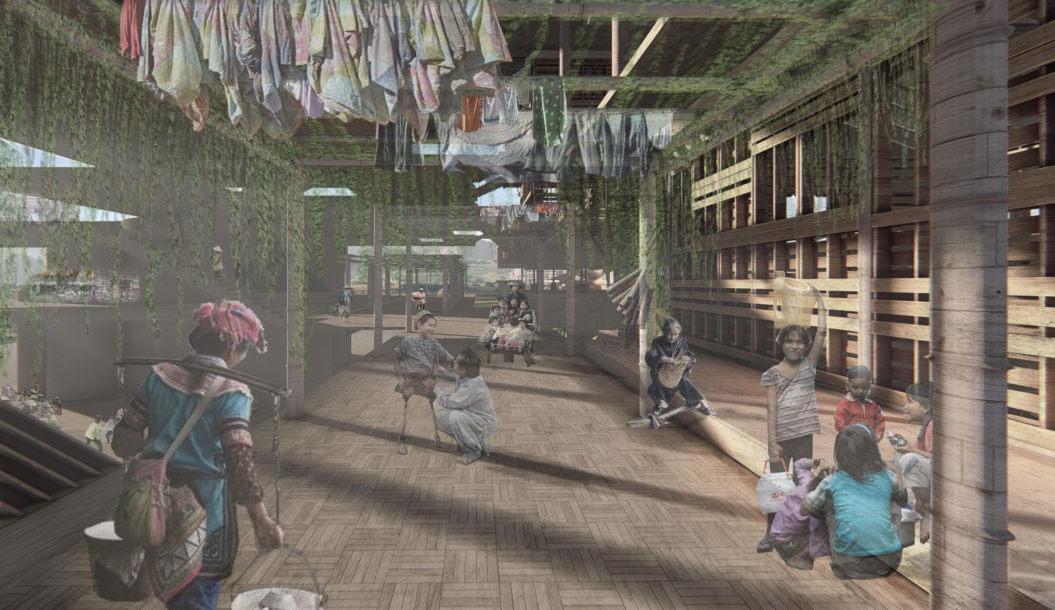
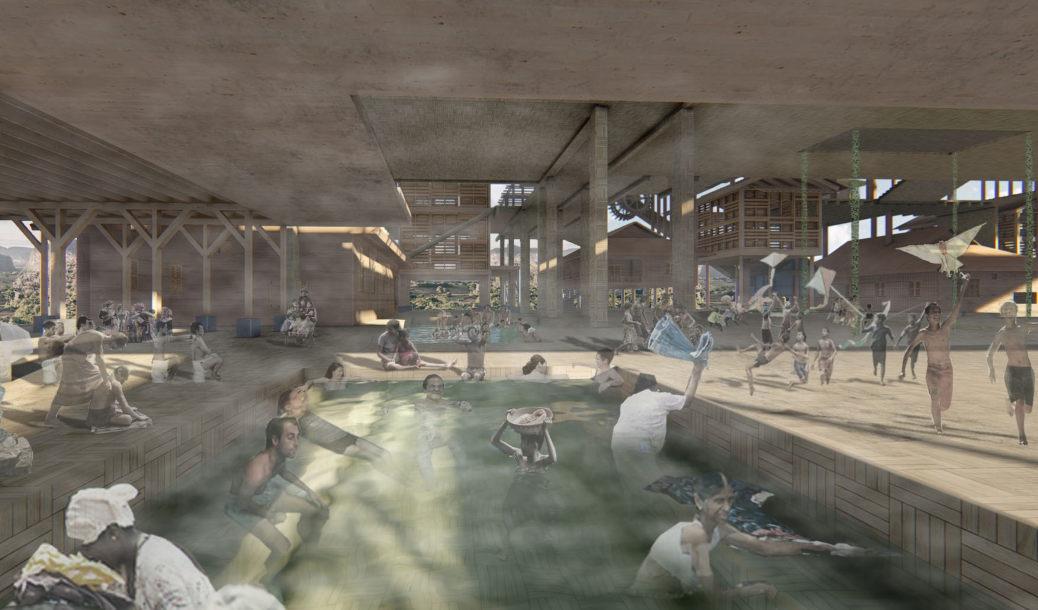
Avoidance 2.0
Parasite Mode: Last Line Of Defense
Individual Work | Academic Site: Huanggang Port, Hong Kong, China
Duration: March-May, 2020
The similarities between Hongkong and “Parasite” are tremendous, so the projection seems plausible. Meanwhile, the overwhelming pressure forces them to produce some deformed ideas and create some architectural wonders.Hence, this thesis project tries to apply the " parasite " pattern for the slums by using the specific viewpoint of the film and analyzing the intricate needs and laws under the reality.
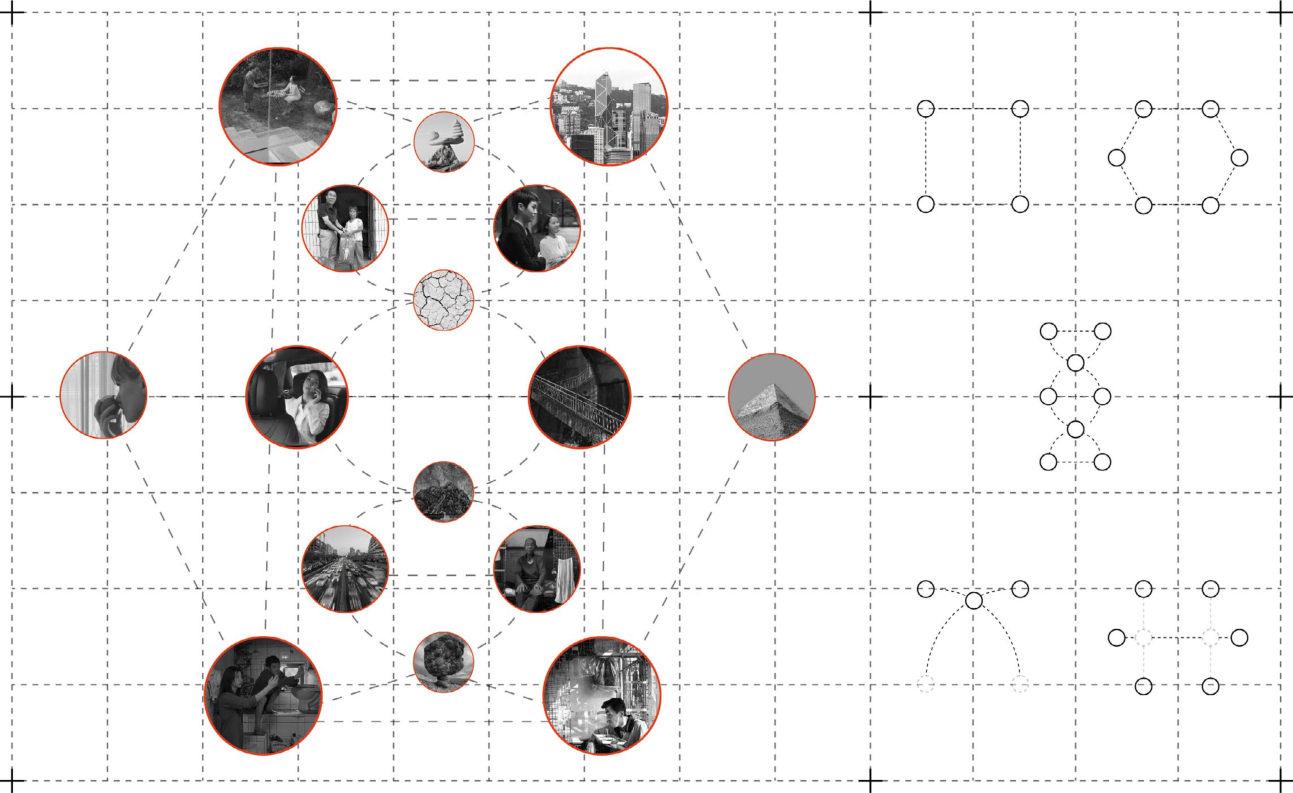
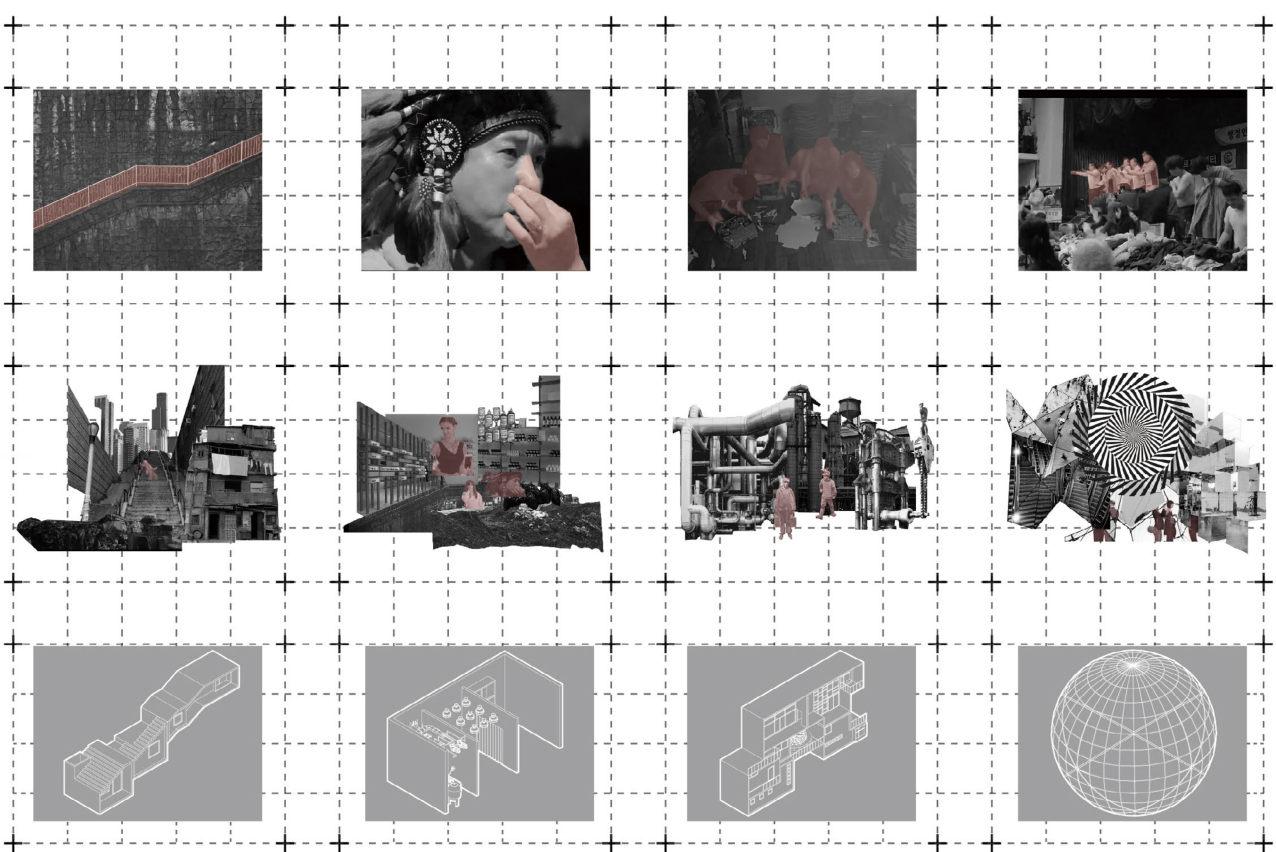
Validity Relationship Framework
The one-to-one correspondence between reality and film implies the effectiveness of projection. Also the progress of the film enable to unearth the laws that lie beneath the seemingly haphazard reality.
Sumptuous
Flattering Display
Undefeatable Disparaing
Desperate Bustling
Dispirited Dank
Element Transformation
Class
Plot
The correspondence defines the basic framework
Structure
Adding levels of discrimination forms the loop
DNA
The overall structure looking like DNA implies its inveteracy
Progress Mechanism
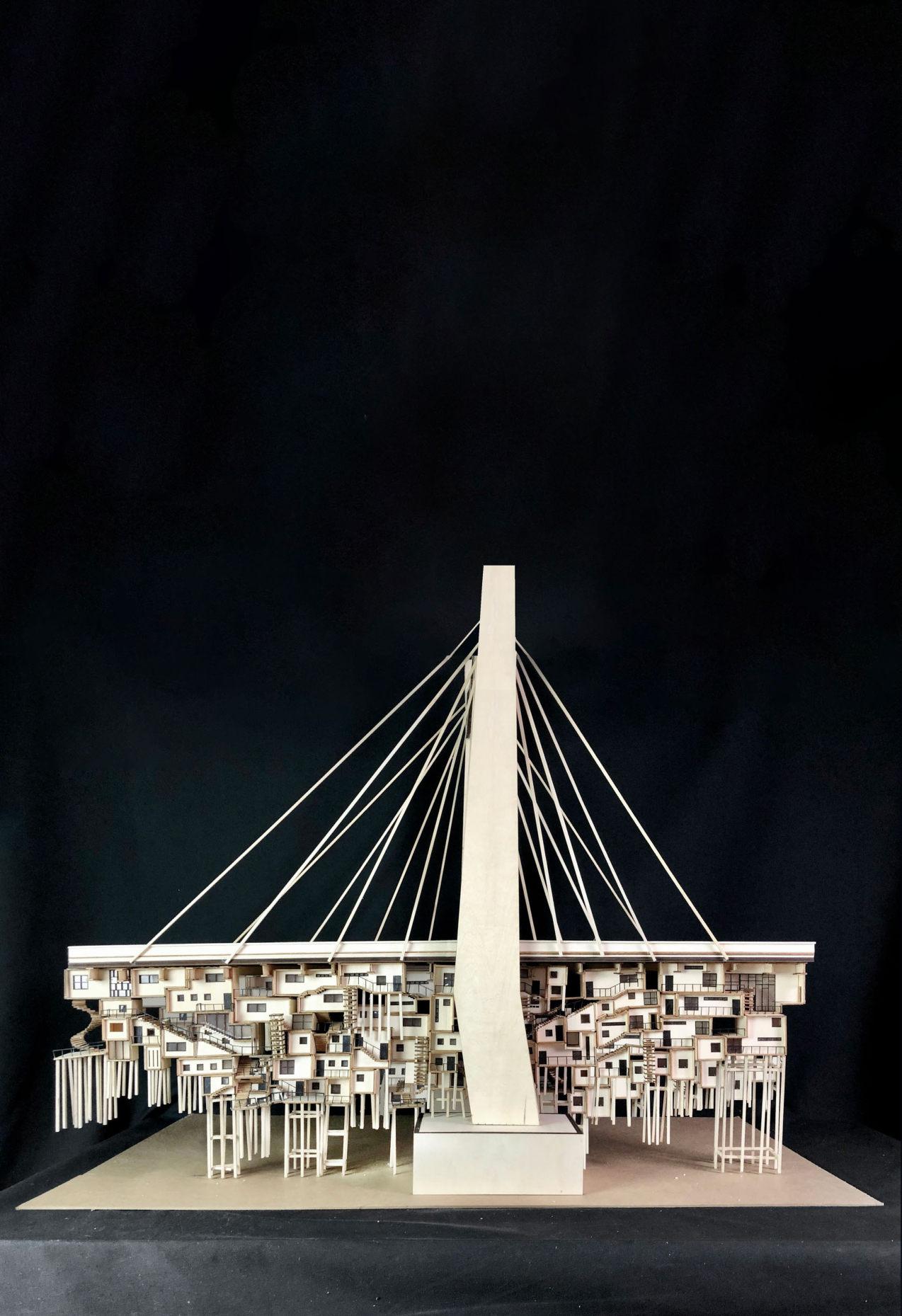
The connected relation promote the plot Adding the gauge to restrict circulation
Scene Extraction Extract the key points of the film to analyze its role
StairSmell Home Working Welfare
Scene Atmosphere Take apart specific movie scenes and transform them into atmosphere
Desolation
Fragrance
Oppression
Vertigo
Scene Translation Translate atmosphere into spaces and add realistic meaning and cinematic metaphors
Site Analysis
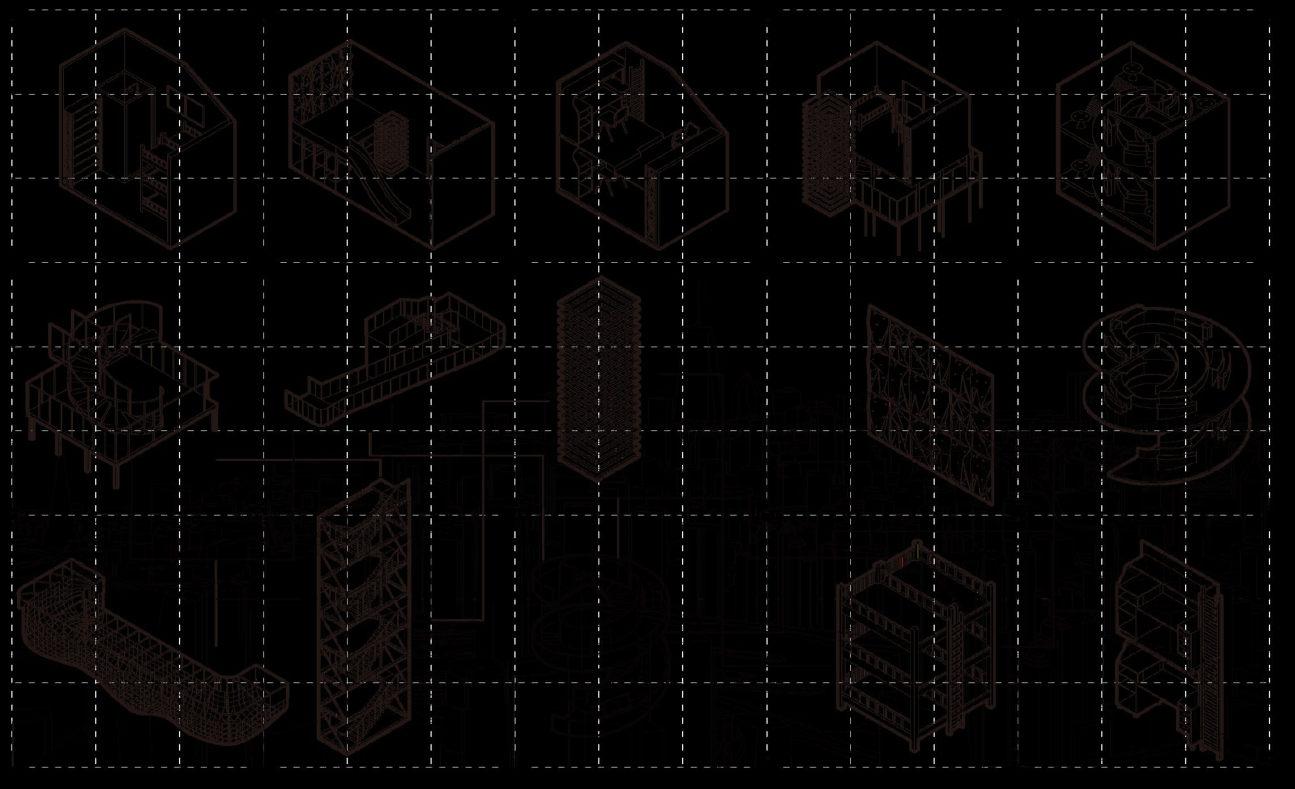
Shenzhen-Birdge-Hongkong
Huanggang Port is located at the junction of Hongkong and Shenzhen, this special geographic location indicates the fancy mental position— the last line of slums. Owing to being frustrated by the life pressure, they retreat to that line. Site
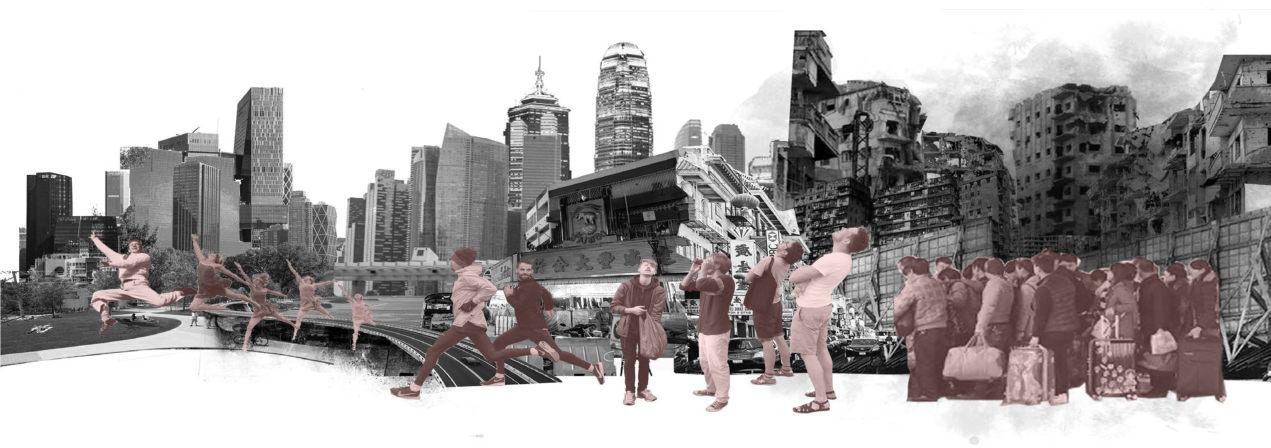
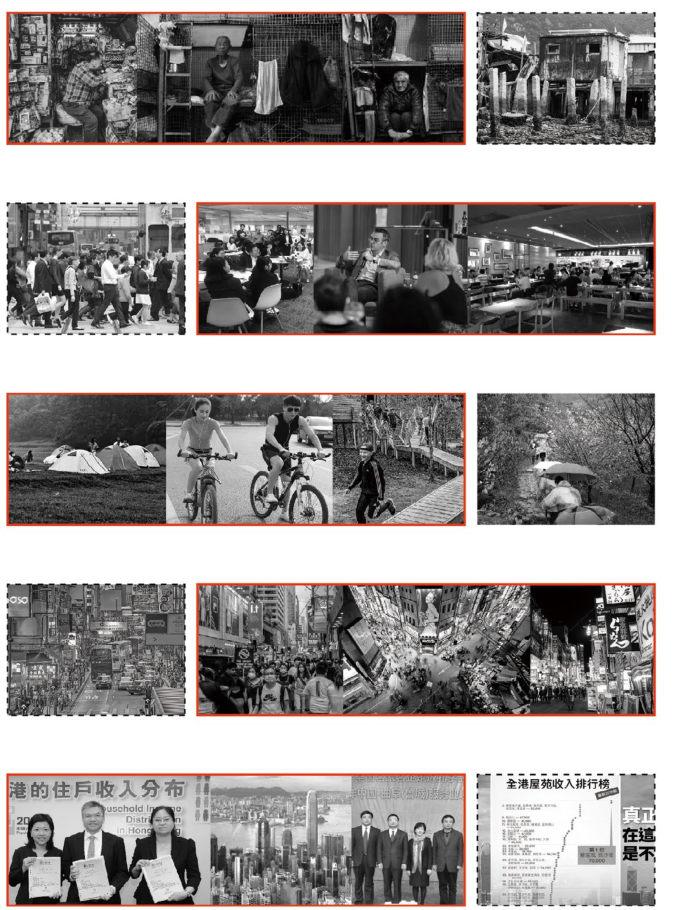
Need Analysis
Using practical means and metaphors in the film to analyze the special needs, so as to form the basic architectural elements and mix with each other to form building units.
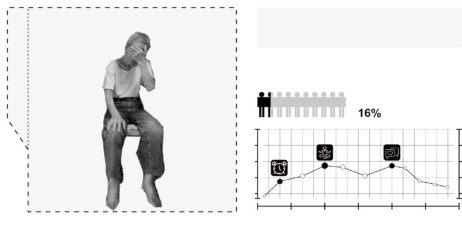
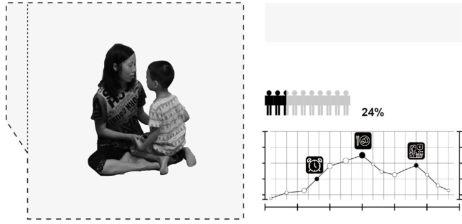
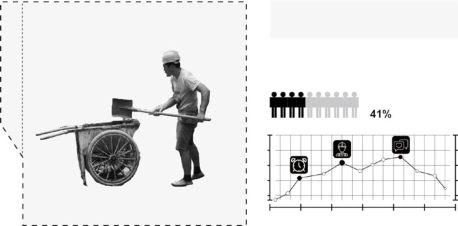

Intrigued by the fantastic architectural setting and lifestyle, they normally prefer to withstand the pain.
Different kinds of slums shoulder different social responsibilities.
A Self-deceiving Journey
Forced by the pressure of life, a large number of slum fled their current residence and started a huge journey. However, this kind of travel is essentially a self deception retreat, which is essentially just a retreat from one edge to another.
Hesitation
Slums who keep rational and seethrough the illusions finally escapes the temptation of vertigo
Unwilling to escape from this magical city, a large number of them stay here, which is the last line of defense .
The process was mesmerized by the sheer number of architectural marvels, a small part of them stayed behind.
Because of poor and unfair living conditions, slums tend to feel fatigued, so they start the jounery.
